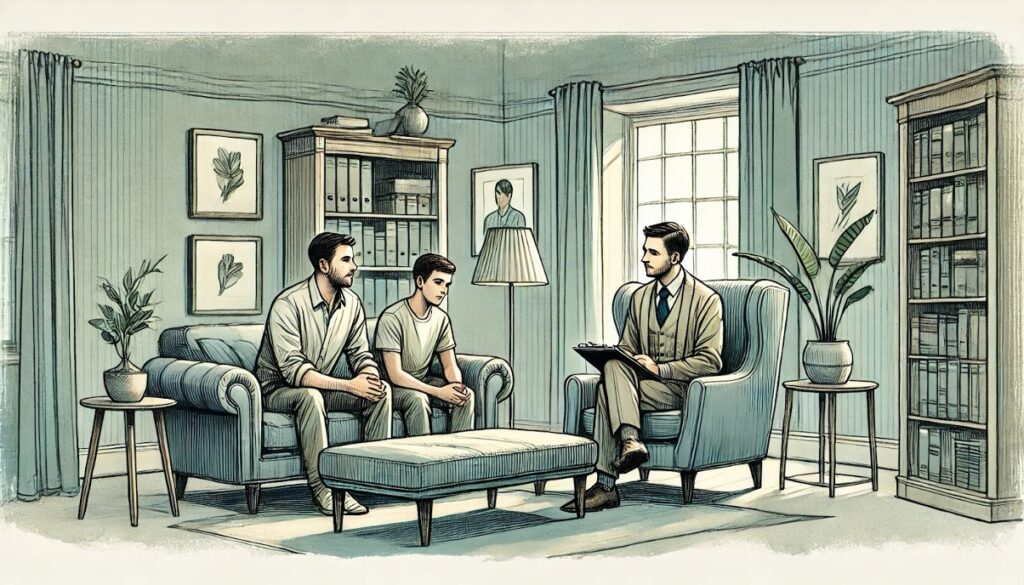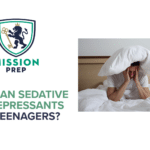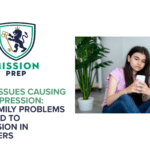Key Takeaways
- CBT is a widely researched and effective therapy for treating teen depression. It helps improve mood and behavior by teaching coping skills.
- Early intervention with CBT can prevent more severe mental health issues.
- Challenges include resistance from teens and the need for a strong therapist-client relationship.
- Different CBT approaches, such as individual, group, and family-inclusive sessions, offer flexibility.
- Mission Prep offers personalized teen depression treatment that includes thorough assessments, early light exposure therapy, outdoor sessions, and family involvement to create a foundation for lasting healing and hope.
Overview of CBT for Teen Depression
Cognitive behavioral therapy (CBT) involves working with a therapist to identify and challenge negative thought patterns and replace them with healthier ones. This therapy is structured and goal-oriented, which is why it’s particularly suitable for teens who benefit from clear guidance and measurable progress. Sessions typically last about 45-60 minutes and are held weekly.
Why Teens Experience Depression
Depression in teens can be triggered by various factors, including genetic predisposition, hormonal changes, and environmental stressors.
Adolescents face unique challenges, such as peer pressure, academic expectations, and identity exploration, which can contribute to depression.
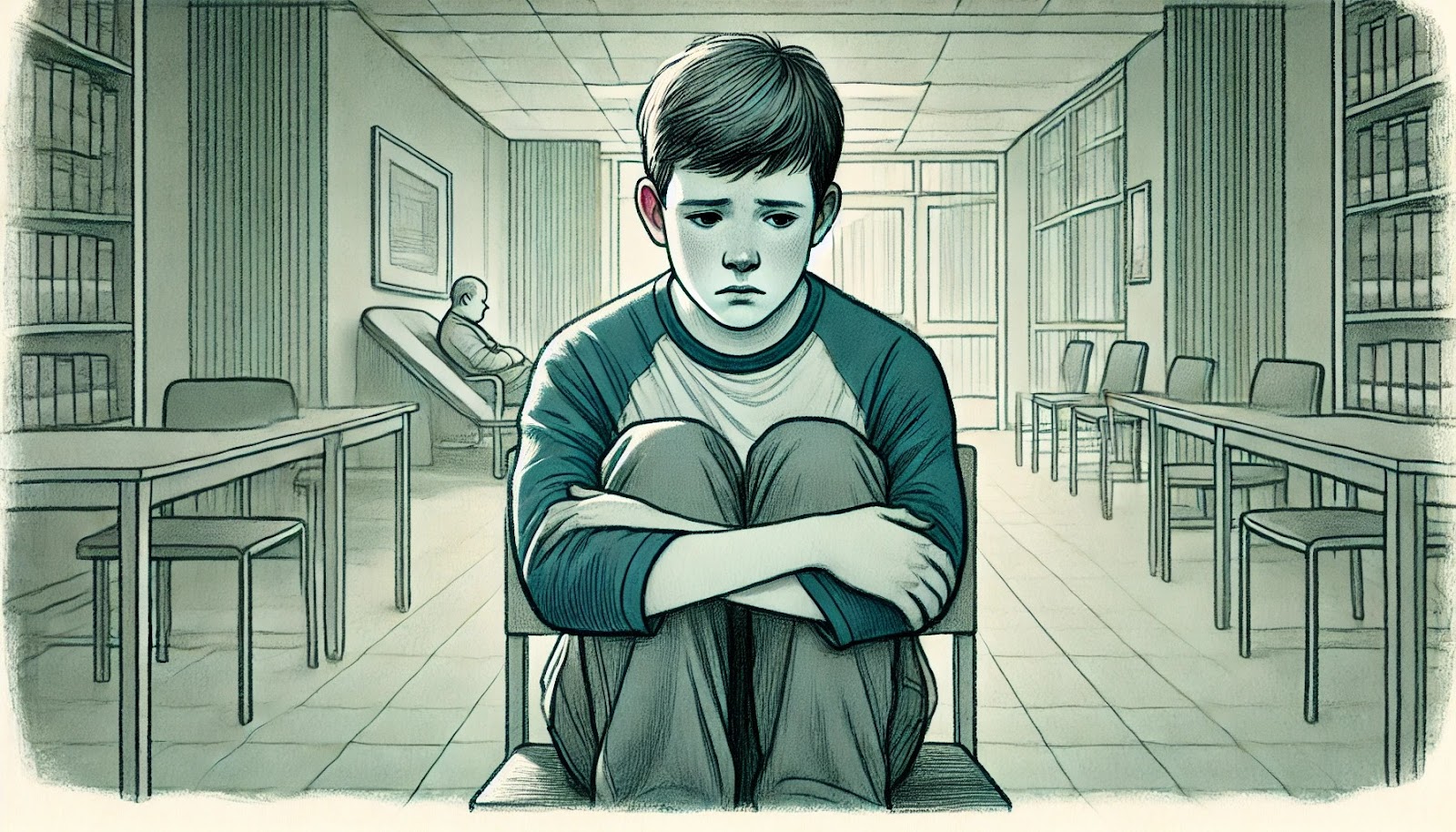
Signs of depression may include persistent sadness, irritability, changes in sleep or appetite, and a loss of interest in activities once enjoyed. By recognizing these symptoms early, teens can get immediate treatment and regain their mental health.
Importance of Early Intervention
Addressing depression can prevent the development of more severe mental health conditions like bipolar disorder. Early treatment also helps teens develop healthy coping mechanisms that can serve them throughout their lives. Plus, it reduces the risk of academic and social difficulties, improving the overall quality of life for the adolescent.
CBT is particularly effective as an early intervention tool because it equips teens with the skills to manage their thoughts and emotions. By learning to identify and challenge negative thinking patterns, adolescents can gain control over their feelings and behaviors, leading to better mental health outcomes.
Mission Prep Healthcare specializes in mental health treatment for teens aged 12-17, offering residential and outpatient programs for anxiety, depression, trauma, and mood disorders. Our therapies include CBT, DBT, EMDR, and TMS, tailored to each adolescent’s needs.
With a structured, supportive environment, we integrate academic support and family involvement to promote lasting recovery. Our goal is to help teens build resilience and regain confidence in their future.
Pros of CBT for Teen Depression
Improvement in Mood and Behavior
CBT helps teens understand the connection between their thoughts, feelings, and behaviors. By identifying and challenging negative thought patterns, they can change how they feel and act.
This process leads to a noticeable improvement in mood and behavior, often within a few weeks of starting therapy.
Development of Coping Skills
One of the core components of CBT is teaching teens coping skills that they can apply in various situations. This includes problem-solving, stress management, and emotional regulation—all of which can help teens handle life’s challenges, reducing the likelihood of future depressive episodes.
Plus, CBT encourages teens to engage in activities that promote positive emotions and well-being. This approach, known as behavioral activation, helps break the cycle of depression by increasing engagement in rewarding activities.
Structured and Time-Limited Approach
CBT is typically a short-term therapy, lasting between 12 and 20 sessions, which appeals to many teens. The focus on specific outcomes helps them stay motivated and engaged throughout the therapy process.
Plus, the skills learned during CBT can be applied long after therapy has ended.
Challenges and Limitations of CBT
Not a Quick Fix
CBT, while effective, is not a quick fix for depression. It requires commitment and effort from both the teen and their family. Progress may be gradual, and it can take time for the adolescent to fully engage with the therapy process. Some teens might not see immediate results, which can be discouraging.
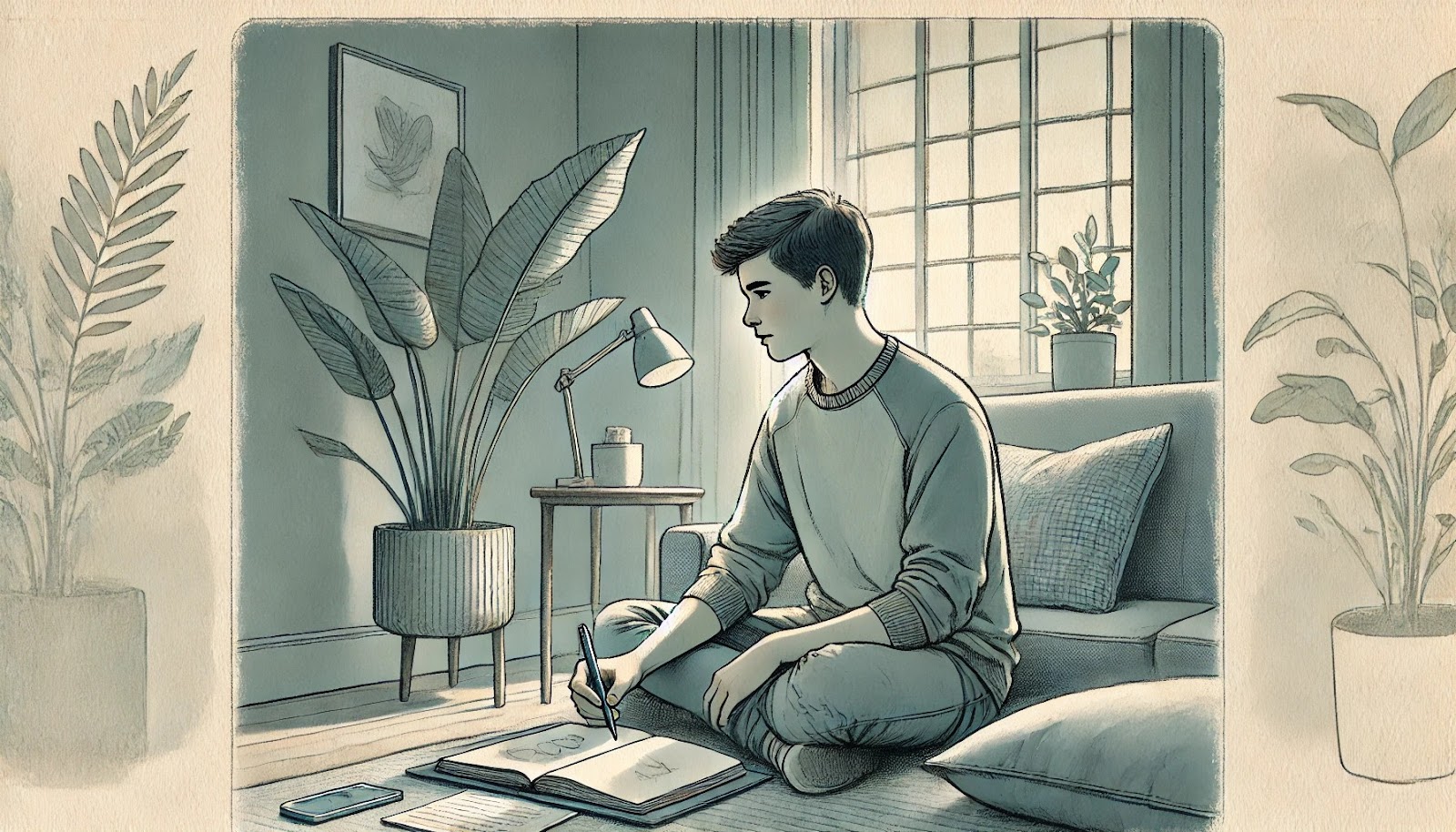
Also, the success of CBT heavily depends on the active participation of the teen. They must be willing to attend sessions regularly, complete homework assignments, and practice the skills learned in therapy. Without this level of engagement, the benefits of CBT may be limited.
Potential Resistance from Teens
Teens may sometimes resist therapy for various reasons—maybe they feel embarrassed, ashamed, or simply uninterested in discussing their feelings with a therapist. And, this can be a significant barrier to the success of CBT.
Building a strong rapport with the therapist can help overcome this resistance. When teens feel comfortable and understood, they are more likely to open up and engage in the therapeutic process. Encouragement and support from family members can also motivate teens to attend sessions and work on their mental health.
Dependence on Therapist-Client Relationship
A strong, trusting relationship is needed for teens to feel safe and supported during CBT. If a teen doesn’t feel connected to their therapist, they may be less likely to engage in the process and apply the skills learned.
Choose someone who specializes in adolescent mental health and has experience working with teens. The therapist should also be someone the teen feels comfortable with and can relate to.
CBT Treatment Options for Teens
Individual vs. Group CBT
Individual CBT, meaning one-on-one sessions between the therapist and the teen, allows for personalized attention and the opportunity to address specific issues in depth. It’s particularly beneficial for teens who may be uncomfortable discussing their feelings in a group setting.
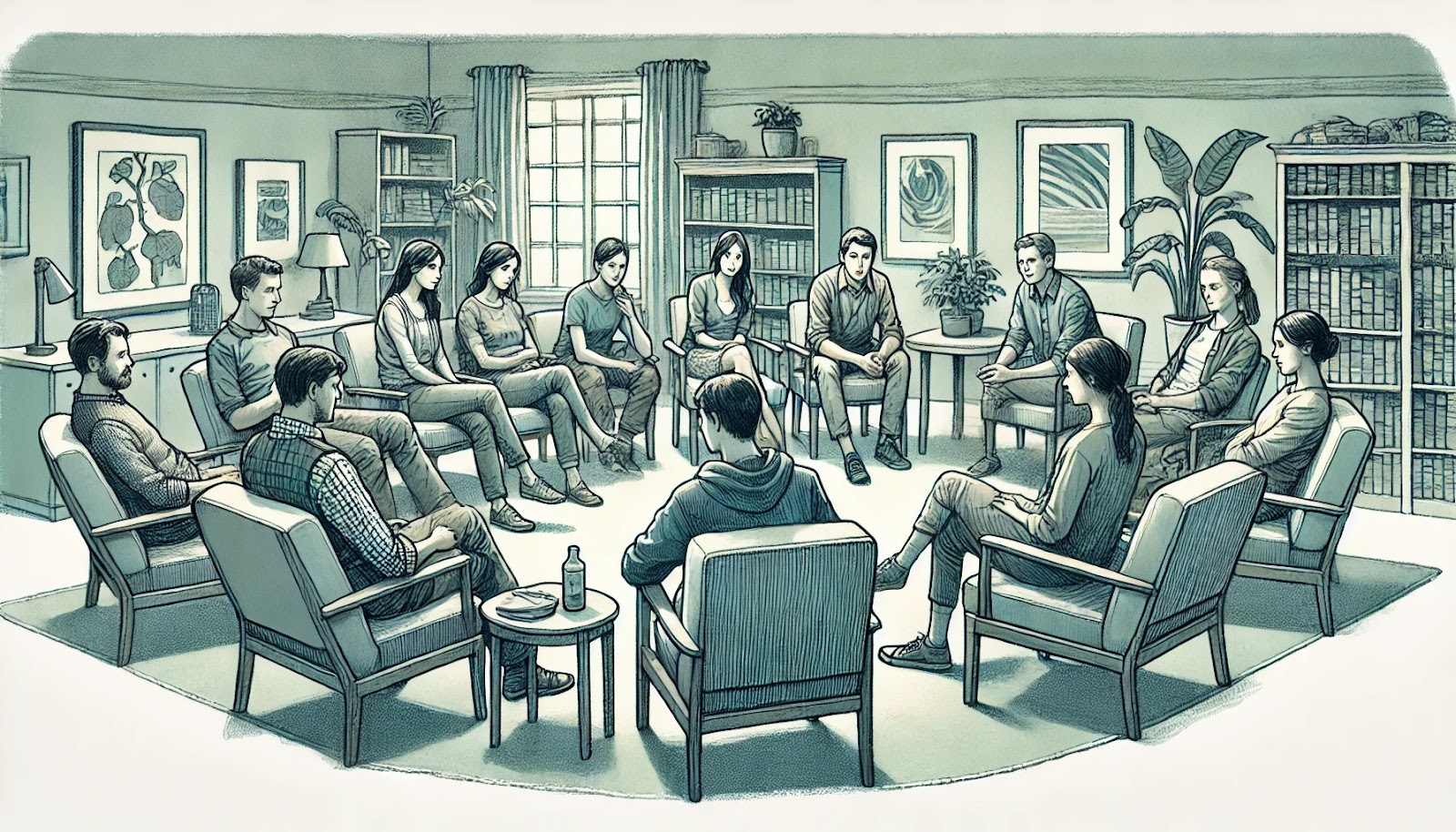
On the other hand, group CBT offers a different dynamic. It provides teens with the chance to connect with peers who are experiencing similar challenges.
This sense of community can be empowering and help reduce feelings of isolation. Group therapy also allows teens to learn from others’ experiences and practice social skills in a supportive environment.
Family CBT
Family CBT sessions are done parents and caregivers and help address any dynamics or conflicts that may be contributing to the teen’s depression.
This can create a more comprehensive support system for the teen. It encourages open communication and collaboration, which can strengthen relationships and foster a more positive home environment.
Online CBT Platforms
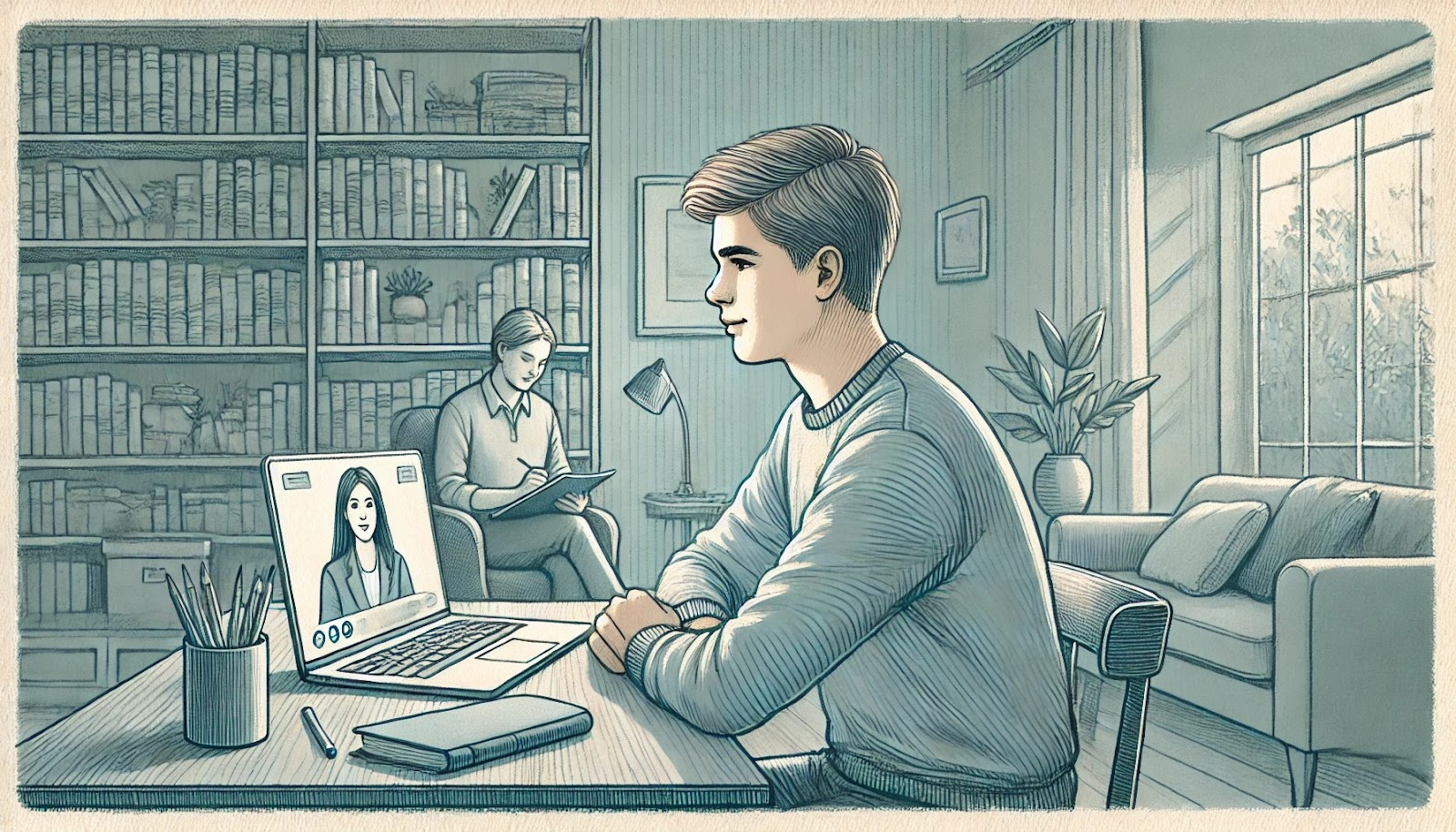
In recent years, online CBT has become an increasingly popular option. Virtual sessions offer flexibility and accessibility, and can be particularly beneficial for those living in remote areas or with busy schedules.
Online CBT uses the same principles and techniques as in-person therapy but is delivered through digital platforms. It can include video sessions, online modules, and digital worksheets. While some may have concerns about the effectiveness of virtual therapy, research has shown that online CBT can be just as effective as traditional face-to-face sessions.
Comparing CBT with Other Treatments
Medication vs. CBT
Medication can be an effective treatment for severe depression, but it often comes with side effects and requires careful monitoring. CBT, on the other hand, provides a non-pharmacological approach that focuses on skill-building and long-term coping strategies.
In some cases, a combination of medication and CBT may be recommended to address both the biological and psychological aspects of depression.
Interpersonal Therapy
Interpersonal therapy (IPT) focuses on improving relationships and social functioning. It addresses issues such as communication skills, social support, and conflict resolution. IPT can be particularly beneficial for teens who struggle with interpersonal relationships.
While IPT and CBT have different focuses, they can be used together to provide a well-rounded approach to treating teen depression. By addressing both cognitive and social aspects, teens can develop a more comprehensive set of skills to manage their mental health.
Supportive Counseling
Supportive counseling is a more general approach to therapy that focuses on providing a safe and empathetic space for teens to express their feelings. Unlike CBT, it doesn’t follow a structured format or focus on specific skills. Instead, it emphasizes listening, empathy, and understanding.
For some teens, supportive counseling can be a valuable first step in seeking help, as it helps to build trust and rapport so they’ll be more open to other forms of therapy like CBT. However, it may not be as effective in addressing the cognitive and behavioral patterns that contribute to depression.
Why Choose Mission Prep for Teen Depression Treatment

At Mission Prep, our approach goes beyond traditional CBT. We create a comprehensive healing environment that addresses teen depression from multiple angles. Our thorough assessments using ACEs evaluation help us understand each teen’s unique story.
We incorporate evidence-based CBT techniques with innovative approaches like early light exposure therapy, transcranial magnetic stimulation, and outdoor sessions that naturally boost mood and motivation.
Mission Prep also offers outpatient and residential treatment options. Our residential treatment program creates a supportive community environment to combat isolation while providing 24/7 supervision in modern, welcoming facilities located in Virginia and California.
Don’t let depression win. Contact us today to learn how our personalized, comprehensive approach can create a foundation for sustainable healing and renewed hope.
Frequently Asked Questions
How does CBT help teens with depression?
CBT helps teens by teaching them to identify and challenge negative thought patterns, leading to improved mood and behavior. It provides practical skills for managing stress, problem-solving, and emotional regulation, empowering teens to take control of their mental health.
Can teens receive CBT online?
Yes, teens can receive CBT online through virtual sessions. Research has shown that online CBT can be just as effective as in-person sessions.
How long does CBT treatment usually last?
CBT is typically a short-term therapy, lasting between 12 and 20 sessions, but the duration may vary depending on the teen’s progress and specific needs.
Is CBT effective for severe depression in teens?
CBT can be effective for teens with severe depression, especially when combined with other treatments like medication. It provides the skills needed to manage thoughts and behaviors, while medication can help stabilize mood. A comprehensive treatment plan that addresses both biological and psychological aspects is often recommended for severe cases.
What makes Mission Prep’s approach to teen depression treatment unique?
Mission Prep Healthcare offers comprehensive and personalized treatment that begins with a thorough assessment, including evaluations of family history and dynamics using the Adverse Childhood Experiences (ACEs) assessment.
Our unique approach combines CBT strategies with natural elements like early light exposure, fresh air sessions, and gentle movement. We also emphasize family involvement, equipping parents with tools to effectively communicate with their teens during depressive episodes.


